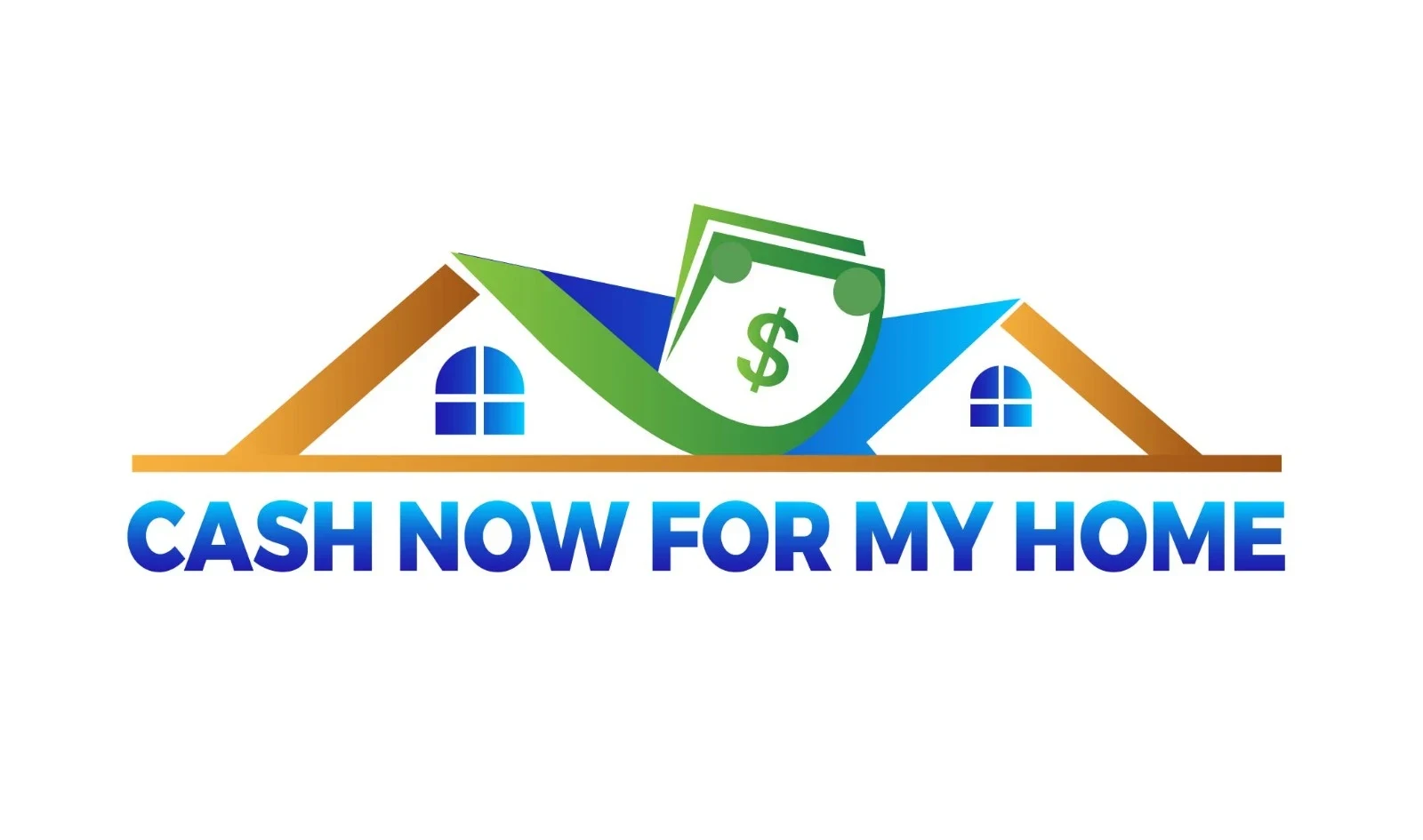Are you considering buying a new home but unsure whether to go for a mobile home or a condo? In this article Mobile Home vs. Condo: Pros & Cons we will discuss both living options.
Mobile Home Vs. Condo Living
While both options offer unique benefits, they differ in many ways. Mobile homes, also known as manufactured homes, are built on a trailer chassis and can be easily moved from one location to another. They are typically found in mobile home parks or manufactured home communities that provide affordable housing options for those who want to own a house without the high cost of traditional homeownership.
On the other hand, condos are usually more expensive than mobile homes and offer a different type of community living experience. They are often located in urban areas and come with amenities such as swimming pools, fitness centers, and security services.
There are several factors to consider. For instance, if you value mobility and affordability over luxury amenities and urban living, then a mobile home might be the best fit for you. However, if you prefer upscale living with access to all the conveniences of city life, then a condo might be your ideal choice.
So what exactly is a manufactured home? Simply put, it’s any dwelling unit that is built off-site in a factory setting and transported to its final location for installation. The term “mobile home” was coined during the early days of this industry when homes were indeed designed to be mobile. However, over time regulations have changed so much that most manufactured homes today cannot be moved once they have been installed.
Mobile Homes vs. Condo: Pros and Cons
If you’re looking for an affordable housing option, a mobile home might be the perfect fit for you. However, before making any decisions, it’s essential to weigh the pros and cons of living in a mobile home.
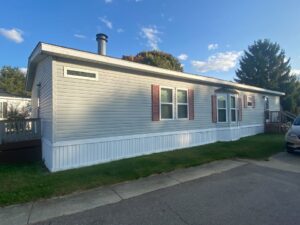
Affordability
One of the most significant benefits of owning a mobile home is affordability. Mobile homes are often more affordable than traditional homes or condos. According to data from the U.S Census Bureau, the average cost per square foot for new manufactured homes in 2020 was $55. Compare that to $119 for new site-built homes.
Moreover, when purchasing a mobile home, you can choose from various models with different features and sizes that fit your budget. Most lenders offer financing options specifically designed for mobile homes.
Flexibility
Another advantage of owning a mobile home is flexibility. Mobile homes can be moved to different locations, providing flexibility for homeowners who want to travel or relocate without selling their property.
Moving your mobile home is relatively easy compared to relocating an entire house or apartment. You can hire professional movers who specialize in transporting manufactured homes safely and efficiently.
You might be interested in our article How Much Does it Cost to Prepare a Mobile Home for Land.
Maintenance
Mobile homes require less maintenance than traditional homes because they are typically smaller and have fewer features. Many manufacturers use high-quality materials that withstand harsh weather conditions like wind and rain.
However, like any other type of housing, regular maintenance is necessary to keep your mobile home in good condition. Some common maintenance tasks include cleaning gutters, repairing leaks or cracks on roofs or walls, checking HVAC systems regularly.
Read more on our article Mobile Home Maintenance.
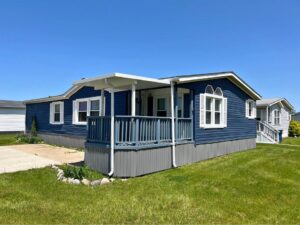
Community
Many people enjoy living in a community that provides social opportunities and interaction with neighbors while still having privacy within their own space. Mobile home parks offer such communities where residents share amenities like pools or clubhouses.
Living in these communities can provide residents with access to social events and activities, making it easier to meet new people and form lasting friendships.
Resale Value
One of the downsides of owning a mobile home is that they may not appreciate in value as much as traditional homes or condos. This can impact resale value if you decide to sell your property in the future.
However, there are ways to increase the resale value of your mobile home. One way is to make upgrades or renovations that add value, such as replacing old appliances or adding energy-efficient features like solar panels.
Why Should You Consider a Manufactured Home
Why consider a mobile home when you could live in a condo? Next we will discuss the pros and cons of condos and what this type of living has to offer over mobile homes.
Pros and Cons of Condos
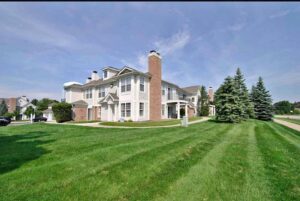
Low-Maintenance Lifestyle
One of the significant advantages of condo living is the low-maintenance lifestyle it offers. Busy individuals who prefer not to spend their weekends mowing lawns, shoveling snow, or cleaning gutters will find condos a perfect fit. Condo associations handle all maintenance and repairs, including exterior upkeep, landscaping, and common area cleaning. This saves owners time and money while giving them peace of mind.
Access to Shared Amenities
Condo living provides access to shared amenities such as swimming pools, fitness centers, tennis courts, and playgrounds that may be too expensive for individual homeowners. These amenities are maintained by the condo association and are available for use by all residents. Living in a condo community gives you access to various recreational facilities without having to leave your neighborhood.
Sense of Community and Security
Condominiums offer a sense of community with shared spaces like lobbies, hallways, elevators, and gated entrances that encourage interaction among residents. This fosters a sense of belongingness that is hard to find in single-family homes. Most condos have security measures such as cameras or security personnel that make them safer than traditional homes.
Homeowners Association Fees
The primary disadvantage of owning a condo is the cost associated with homeowners association fees (HOA). These fees can add up significantly over time and become an extra expense on top of your mortgage payment. While these fees cover maintenance costs for shared spaces like parking lots or common areas, they can also include insurance premiums or other expenses.
Lease Restrictions
Another potential downside to owning a condo is lease restrictions enforced by the HOA. Some condominium communities limit how long you can rent out your unit or restrict renting altogether. This can be problematic if you plan on using your unit as an investment property or if you need flexibility in terms of where you live.
Factors to Consider Before Buying a Home
Buying a home is a significant decision that requires careful consideration of various factors. Whether you are looking for a condo or mobile home, it’s essential to weigh your options and make an informed decision.
Financing Options
Financing is one of the most crucial factors to consider when buying a home. You need to evaluate your financial situation and determine how much you can afford to spend on your new home. If you plan to take out a mortgage, it’s essential to shop around and compare rates from different lenders. This way, you can find the best deal that suits your needs.
Another financing option is owner financing, where the seller acts as the lender and provides financing directly to the buyer. Owner financing can be an excellent option if you have trouble securing traditional financing due to poor credit or insufficient income.

Cost of Property
The cost of the property is another critical factor that you should consider when buying a home. The price of homes varies depending on location, size, and condition. It’s essential to do your research and compare prices in different neighborhoods before making an offer.
When comparing prices, don’t forget other costs associated with owning a property such as maintenance expenses, utilities bills, insurance premiums, and property taxes.
Property Taxes
Property taxes are another expense associated with homeownership that should not be overlooked. The tax rates vary by state and locality but typically range between 0.2% – 2% of the property value per year.
Before purchasing any property, make sure you understand how much property taxes will cost annually so that there are no surprises later on.
Common Property Access
If you’re considering buying into shared housing like condos or co-ops (which often come with amenities like pools or fitness centers), it’s important to think about what kind of access you’ll have to these common areas. Some associations may restrict access to certain amenities or charge extra fees for their use.
Land Value
Land value is another critical factor that you should consider when choosing between a condo and mobile home. Condos typically come with less land, while mobile homes often sit on larger plots. The value of the land can impact your long-term investment potential, so it’s essential to consider this when making your decision.
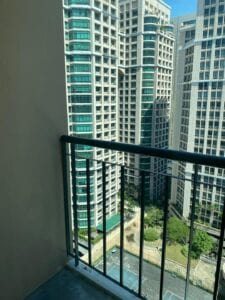
Renting vs. Owning Real Property
Before buying any property, it’s important to weigh the pros and cons of owning real property versus renting. While owning a home can provide long-term financial benefits, it also comes with added responsibilities like maintenance costs and repairs.
On the other hand, renting provides more flexibility and less commitment but does not offer long-term investment potential.
Long-Term Investment Potential
Finally, when considering a new home loan, it’s essential to think about its long-term investment potential. A well-maintained property in an up-and-coming neighborhood can appreciate significantly over time.
However, there are no guarantees in real estate investing.
Choosing the Right Neighborhood
One of the most important factors to consider is the surrounding neighborhood. The right neighborhood can make all the difference in your quality of life, so it’s essential to do your research before making a decision.
Consider Home Communities and Homeowners Associations
One of the benefits of living in a condo or mobile home community is that you’ll have access to a sense of community and shared lifestyle. Many communities offer amenities like swimming pools, fitness centers, and social events that can help you meet new people and feel more connected to your neighbors.
Many homeowners associations (HOAs) provide services like landscaping, trash removal, and exterior maintenance that can take some of the stress out of homeownership. However, it’s important to note that HOA fees can add up quickly, so be sure to factor them into your budget when comparing the costs of condos vs. mobile homes.
Look for Accessible Amenities
When choosing between a condo and mobile home, it’s also essential to consider what amenities are available in the surrounding area. For example:
Parks: If you enjoy spending time outdoors with family or pets, look for areas near parks or green spaces.
Shopping Centers: If you prefer shopping at brick-and-mortar stores instead of online retailers or want easy access to grocery stores or other necessities.
Schools: Families with children should prioritize areas with good schools nearby.
Public Transportation: If you rely on public transportation for work or other activities.
Privacy Considerations
Mobile homes may offer more privacy than condos in densely populated city areas. Mobile homes tend to be located on larger plots of land than condos; thus providing more space between units. This added distance provides an increased level of privacy from neighbors compared with living in a condominium complex where units are often stacked on top of each other.
However, if privacy is a significant concern, it’s essential to consider the reputation of the landlord or landowner. Some mobile home parks have a reputation for being unsafe or poorly managed, which can lead to issues with crime and maintenance.
Market Considerations
Finally, it’s important to consider the market when choosing between a condo and mobile home. In general, condos tend to hold their value better than mobile homes over time. This is because they are often located in desirable urban areas where demand is high.
However, this isn’t always the case. If you’re considering buying a mobile home, be sure to research the local market carefully and compare prices with similar properties in the area.
Home Size and Number of Rooms
One of the most significant factors to consider is the size of the home and the number of rooms available. Both types of homes have their advantages and disadvantages in this regard, so it’s important to weigh them carefully before making a decision.
Condos usually have more amenities and facilities than mobile homes.
Condos are typically known for their luxurious amenities and facilities, which can make them an attractive option for those who want to live in style. They often offer features like swimming pools, fitness centers, community rooms, and other shared spaces that can be enjoyed by all residents. Many condos come with high-end appliances like stainless steel refrigerators, granite countertops, and other modern conveniences that can make life easier.
However, these amenities come at a cost. Monthly fees for condos can be higher due to shared expenses like pools and maintenance. Before deciding on a condo, it’s essential to factor in these additional costs when budgeting for your monthly expenses.
Mobile homes offer more open space and larger lots than condos.
Mobile homes may not have as many amenities as condos do but they offer more open space and larger lots where you can enjoy outdoor activities or gardening. If you value privacy or love being surrounded by nature then mobile homes might be your best bet.
Home dealers also offer different sizes of mobile homes depending on your needs. You can choose from single wide or double-wide models ranging from 600 square feet up to 2,500 square feet. This means you will get enough room for everyone in your family without feeling cramped.
Condos are typically newer and have more modern appliances than mobile homes.
Condos are usually newer compared to mobile homes since they are built recently with modern designs that match today’s lifestyle trends. With new construction comes updated appliances such as energy-efficient washers/dryers/stoves, smart home technology, and other modern amenities.
On the other hand, mobile homes can be older, which means they may have outdated appliances that require more maintenance or repairs. However, some mobile home dealers offer new models with updated features and appliances to cater to different price ranges.
Monthly fees for condos can be higher due to shared expenses like pools and maintenance.
Condos are known for their luxurious amenities such as swimming pools, fitness centers, community rooms and other shared spaces that come at a cost. Monthly fees for condos can be higher than mobile homes due to the additional costs of maintaining these facilities. This is important to keep in mind when considering a condo as your future residence.
Mobile homes usually do not have many shared amenities like condos do so you will not pay additional monthly fees for these services. However, you will still need to budget for utilities and regular maintenance costs since it’s still your personal property.
Solar Energy and Mobile Homes
Another great option of owning a mobile home on private land is the opportunity to install solar panels. Solar panels can save you money on your electric bill year after year.
Read our article on Solar Panels for Mobile Homes.
Lack of Permanent Foundations
Two popular options are condos and mobile homes. One significant difference between the two is the presence or absence of a permanent foundation. Condos typically have a concrete foundation, while mobile homes do not. Let’s explore how this affects maintenance costs, modification restrictions, stability, services and amenities available, property taxes, and ownership structure.
Maintenance Costs
Mobile homes lack permanent foundations, making them more susceptible to wear and tear over time. As such, they require more maintenance than condos. For instance, homeowners may need to replace support posts periodically to keep their home level and stable. Mobile homes are often made with lower-quality materials than condos; thus repairs can be more frequent and costly.
Modification Restrictions
Modifying or adding onto a mobile home can be challenging due to the lack of a permanent foundation. Homeowners must comply with stringent regulations that govern what types of modifications are allowed on their property. In contrast, condo owners generally have more flexibility.
Stability
Mobile homes rely on support posts and other structures to remain stable without a permanent foundation. These supports require regular maintenance as they can weaken over time due to exposure to the elements or damage from pests like termites or rodents. In contrast, condo buildings are designed with reinforced concrete foundations that provide greater stability in all weather conditions.
Services and Amenities Available
Condo owners typically have access to more services and amenities than mobile homeowners due to the nature of their ownership structure. Condo corporations manage common areas like landscaping services or garbage collection for all residents in exchange for monthly fees paid by each owner.
Property Taxes
Property taxes vary depending on location and local regulations but generally tend to be lower for mobile homes than condos because they are considered personal property rather than real estate assets in some jurisdictions. However, this is not always the case, and homeowners should check with local authorities to determine their tax obligations.
Ownership Structure
Condos are typically owned by a corporation that provides additional benefits such as shared maintenance costs and access to communal facilities. In contrast, mobile homes are usually owned by individuals who must bear the full cost of maintaining their property.
Making a Choice: Final Verdict
After weighing the pros and cons of both options, it’s time to make a final decision between a condo and mobile home. It’s important to consider your personal budget and future plans before making a choice. You should take into account the rules and fees associated with each option.
Personal Budget and Future Plans
When deciding between a condo or mobile home, your personal budget is an essential factor to consider. A condominium may be more expensive than a mobile home upfront, but it can be worth it in the long run since condos appreciate faster than mobile homes. However, if you’re on a tight budget, purchasing a mobile home may be the better option as they tend to have lower purchase prices.
Another thing to keep in mind when considering your personal budget is that owning either option comes with its own set of expenses such as property taxes, maintenance costs, insurance premiums, and utility bills. You must ensure that you can afford these additional expenses before making your decision.
Your future plans are also crucial when determining which option is best for you. If you plan on traveling frequently or moving around for work purposes, then owning a mobile home might not be the best choice as it’s challenging to move them around from one location to another. On the other hand, if you’re looking for stability and plan on staying in one place for an extended period of time, then buying a condo might be the better option.
Rules and Fees Associated with Each Option
Before making your final decision between a condo or mobile home, it’s essential to understand the rules and fees associated with each option.
Condominiums often come with homeowner association (HOA) fees that cover amenities such as swimming pools or fitness centers along with maintenance services like landscaping or snow removal. These fees can vary depending on where you live but typically range from $100-$700 per month.
Mobile homes also come with fees such as lot rent, which is the fee you pay to park your mobile home on someone else’s land. You may also have to pay for utilities separately.
Another thing to consider is that both options come with their own set of rules. Condos often have strict rules regarding noise levels and pet ownership, while mobile homes might have restrictions on how you can modify or renovate them.
Weighing the Pros and Cons
When making a choice between a condo or mobile home, it’s essential to weigh the pros and cons of each option thoroughly.
Mobile Home vs. Condo: Conclusion
After considering the pros and cons of both mobile homes and condos, as well as important factors such as neighborhood, home size, and permanent foundations, it’s clear that the decision ultimately comes down to personal preference and individual needs.
If you value affordability and flexibility in terms of location, a mobile home may be the best fit for you. On the other hand, if amenities and community living are important to you, a condo may be the way to go.
Regardless of which option you choose, it’s crucial to thoroughly research and consider all factors before making a final decision. Take your time, weigh your options carefully, and don’t hesitate to seek advice from experts or trusted friends and family members.
Remember that purchasing a home is one of the biggest financial decisions you’ll ever make – so take it seriously!
FAQs: Mobile Home vs. Condo
1. Are mobile homes cheaper than condos?
Yes, generally speaking mobile homes tend to be more affordable than condos due to lower property values.
2. Can I get financing for a mobile home?
Yes! There are many lenders who specialize in financing for mobile homes.
3. Do condos have HOA fees?
Yes, most condo communities have homeowners association (HOA) fees which cover maintenance costs for shared amenities like pools or gyms.
4. Can I rent out my condo or mobile home?
It depends on local laws and regulations – be sure to check with your city or county government before renting out your property.
Read more on our article on Renting a Mobile Home
5. What should I look for in choosing a neighborhood?
Consider factors such as safety ratings, proximity to schools or public transportation, access to shopping or entertainment options, and overall community vibe when choosing where to buy your next home.
You might be interested in our article 22 Inspiring Container Home Designs.
